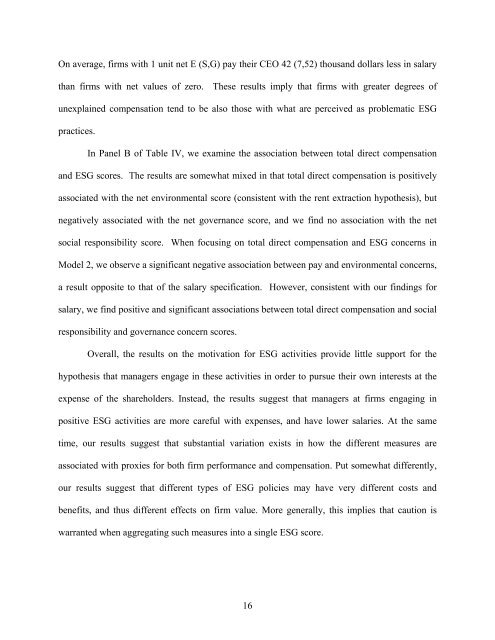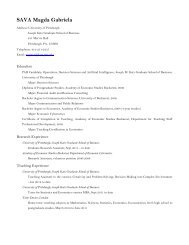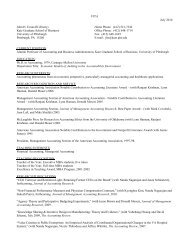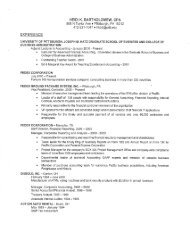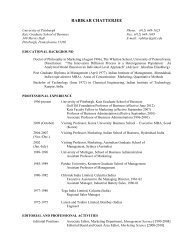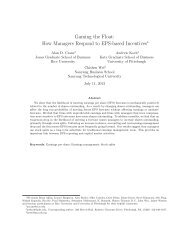Stuart L. Gillan, Jay C. Hartzell, Andrew Koch, and ... - Pitt Business
Stuart L. Gillan, Jay C. Hartzell, Andrew Koch, and ... - Pitt Business
Stuart L. Gillan, Jay C. Hartzell, Andrew Koch, and ... - Pitt Business
You also want an ePaper? Increase the reach of your titles
YUMPU automatically turns print PDFs into web optimized ePapers that Google loves.
On average, firms with 1 unit net E (S,G) pay their CEO 42 (7,52) thous<strong>and</strong> dollars less in salary<br />
than firms with net values of zero. These results imply that firms with greater degrees of<br />
unexplained compensation tend to be also those with what are perceived as problematic ESG<br />
practices.<br />
In Panel B of Table IV, we examine the association between total direct compensation<br />
<strong>and</strong> ESG scores. The results are somewhat mixed in that total direct compensation is positively<br />
associated with the net environmental score (consistent with the rent extraction hypothesis), but<br />
negatively associated with the net governance score, <strong>and</strong> we find no association with the net<br />
social responsibility score. When focusing on total direct compensation <strong>and</strong> ESG concerns in<br />
Model 2, we observe a significant negative association between pay <strong>and</strong> environmental concerns,<br />
a result opposite to that of the salary specification. However, consistent with our findings for<br />
salary, we find positive <strong>and</strong> significant associations between total direct compensation <strong>and</strong> social<br />
responsibility <strong>and</strong> governance concern scores.<br />
Overall, the results on the motivation for ESG activities provide little support for the<br />
hypothesis that managers engage in these activities in order to pursue their own interests at the<br />
expense of the shareholders. Instead, the results suggest that managers at firms engaging in<br />
positive ESG activities are more careful with expenses, <strong>and</strong> have lower salaries. At the same<br />
time, our results suggest that substantial variation exists in how the different measures are<br />
associated with proxies for both firm performance <strong>and</strong> compensation. Put somewhat differently,<br />
our results suggest that different types of ESG policies may have very different costs <strong>and</strong><br />
benefits, <strong>and</strong> thus different effects on firm value. More generally, this implies that caution is<br />
warranted when aggregating such measures into a single ESG score.<br />
16


